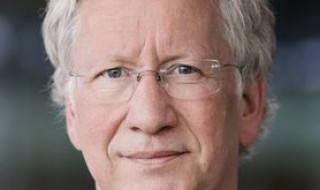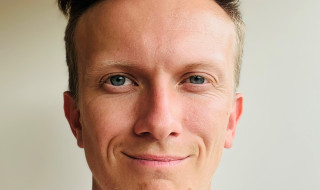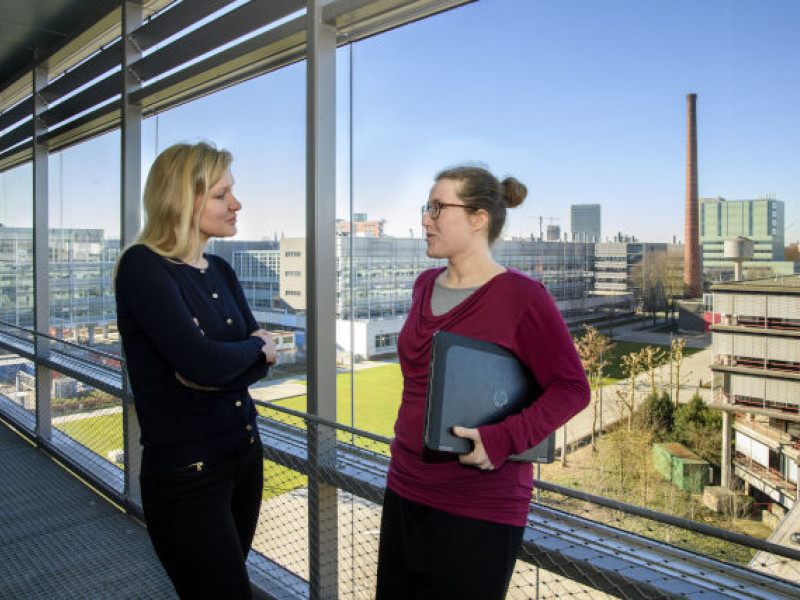EuroTeQ aims to set a European standard
EuroTeQ should become a 'European university', with a transparent offer of international education. Two stakeholders from Eindhoven University of Technology (TU/e) talk about their ambitions, and the obstacles they intend to overcome with SURF's help.
Paul Koenraad, dean of the Eindhoven Graduate School, is in high spirits. The reason? The European Union will continue to fund EuroTeQ for the next few years. "We passed the test with a score of 90 out of 100!"
With EuroTeQ, TU/e wants to take the international mobility of its students to the next level. Studying no longer knows no borders - at least within the European Union: a quarter of Dutch undergraduate and graduate students do part of their studies at a foreign university.
Universities in Europe collaborate on joint educational programmes
This development has been strongly stimulated by Brussels: first with the Erasmus scholarships and since a few years also with subsidies for European University Alliances (EUA). In such an alliance, universities from a large number of countries work on a joint educational offering.

EuroTeQ is one such alliance. It links TU Eindhoven with (for now) five technical universities in Germany, Denmark, France, Spain, the Czech Republic and Estonia. Their joint offer includes not only complete courses, but also smaller series of lectures. "And even smaller activities, such as a workshop or a hackathon," says Koenraad. "Collaborative projects between students from different universities - we call them colliders - where they try to solve a particular technical problem."
The educational offer is partly online. This is important because TU/e's ambition is for at least half of its students to gain international experience, live or virtual. So EuroTeQ is crucial for that.
Educational offerings: from spreadsheet to online catalogue
EuroTeQ's steadily growing programme was first published in the form of a spreadsheet, updated twice a year. Not surprisingly, with the educational offerings, the need for an online catalogue also grew steadily. And that's where things really started to get complicated, Koenraad explains.
"We thought it would be particularly efficient for everyone within EuroTeQ if we used the same technology as the Dutch alliances."
"First, the information must be tailored to students from other countries. Second, it has to be up-to-date at all times. And thirdly, we want to keep all the red tape out of students' sight. After all, when someone registers for a course, a lot of boxes have to be ticked off. And every university works a bit differently. This is true in the Netherlands, and much more so internationally. But students should not notice any of that."
Interoperable: OOAPI is the key to a shared education catalogue
At TU/e, they immediately saw a solution for this, Koenraad says: "We knew what SURF did at our alliance with Wageningen and Utrecht and later at those of Delft, Leiden and Erasmus. There, a joint education catalogue is running satisfactorily as an Interoperable system."
What does that mean? "There is no central database, but SURF developed a software interface - called OOAPI - that links the student information systems of the universities involved. This avoids duplication and discussions about data ownership. OOAPI makes the translations where necessary. We thought it would be particularly efficient for everyone within EuroTeQ if we used that same technology."

Not everyone was immediately convinced of that, says Ben Parker, project manager for the EuroTeQ campus. "Two universities thought other options might exist. They wanted to find those out first. And rightly so: we want to be sure we are building something future-proof."
EuroTeQ's board agreed. Months of testing took place, but then the outcome was clear to everyone: "The only realistic solution was for us to use OOAPI."
eduID: a student passport separate from the institution
This was six months ago. Just a few months later, EuroTeQ's education catalogue went live, with help from SURF. Students can now browse it effortlessly and register for courses or workshops. Whether given in Eindhoven, Munich or Tallin.
But the work is far from finished, says Parker. "For the students, everything happens automatically. But behind the scenes, the enrolment process is still a matter of manual work. We now want to automate that too."
"As institutions or alliances, we need to look beyond our own yard. Otherwise, you never know if you are betting on the right horse."
At the Dutch alliances, this is partly done with the help of a second SURF standard: eduID. This gives each student a unique digital identity, independent of the institution. The student can also use eduID to ensure that the necessary data are automatically transferred to the institution where he wants to take a subject.
But eduID is also a Dutch standard. "That will be the next big discussion for us," says Parker. "We definitely want to use the principle to find or develop a tool that does the same thing."
Overcoming obstacles in international cooperation
The final stage of the process is transferring the obtained study result to the home institution. Paul Koenraad: "Dutch alliances have already managed that too, through OOAPI and eduID. But there are very different numerical scales in Europe. In the Netherlands, we go from 1 to 10; an Italian bachelor, for instance, goes up to 110. So you need conversion tables, but there is political debate about that. Because what is an average score?"
Parker concurs: "In many ways, technology is the least of the problems. You can move some obstacles, but not others. Like the format of the academic year: that also varies from country to country."
Kick-off of the online education catalogue in Brussels
But problems are there to be solved. EuroTeQ has already made great strides in that regard. In September, they want to publicise them more widely, with a kick-off in Brussels where the relevant Eurocommissioner will also be present.
"Our dream," says Koenraad, "is that we can convince the whole of Europe that our approach is the right one. There is no solid alternative anyway."
Parker agrees: "SURF has been working for some time very specifically on standards that can be used at European level. I think that is very essential: as institutions or alliances, we need to look beyond our own yard. Otherwise, you never know whether you are betting on the right horse."
Text: Aad van de Wijngaart
SURF works on European interoperability
The OOAPI standard has long proven itself in the Netherlands. It is used not only by two education alliances, but also for filling the DUO register of courses. Its great value is that it makes systems interoperable : diverse education systems, platforms and technologies can effectively collaborate and exchange data with OOAPI.
But to make OOAPI usable for EuroTeQ, SURF had to do quite a bit of work. On the one hand, there was the development work to fulfil wishes of the foreign universities; on the other hand, it required a lot of technical guidance to implement the software at all member institutions.
Unfortunately, the second SURF standard mentioned in the article, eduID, cannot be adapted for European use: there are Dutch agreements on that. As an alternative, SURF has proposed to EuroTeQ to use eduGAIN. This is an international authentication standard already in use by all EuroTeQ participants. This choice will involve some additional development work, but SURF again expects to deliver a good solution.
However, this is only part of SURF's international activities in this area. Under the auspices of the European Commission, a framework for international interoperability in higher education is being built. SURF is also closely involved in this. Its experiences with EuroTeQ are of great value in this regard.
'EuroTeQ wil een Europese standaard zetten' is a SURF Magazine publication.
Questions about this article? Mail to magazine@surf.nl.
